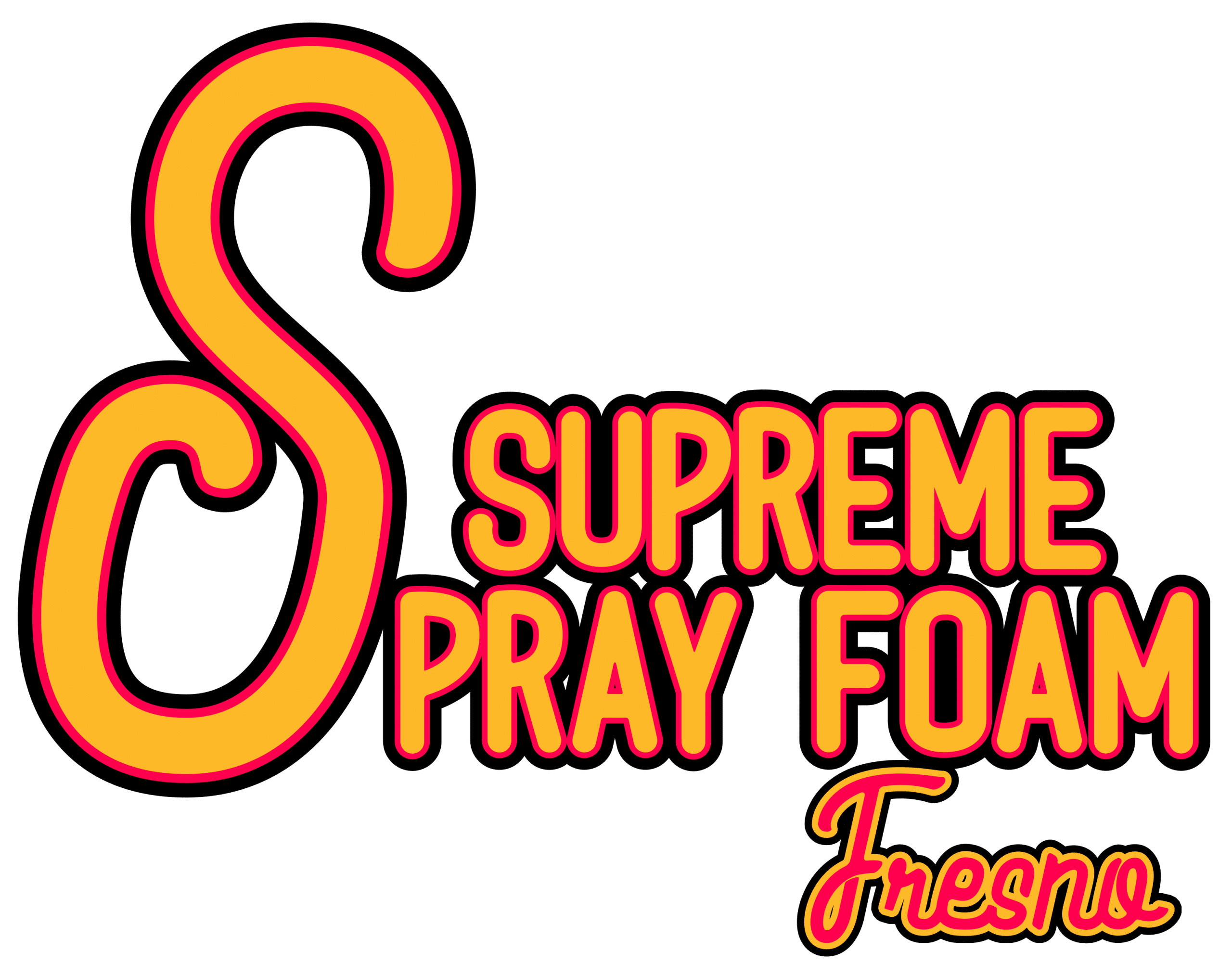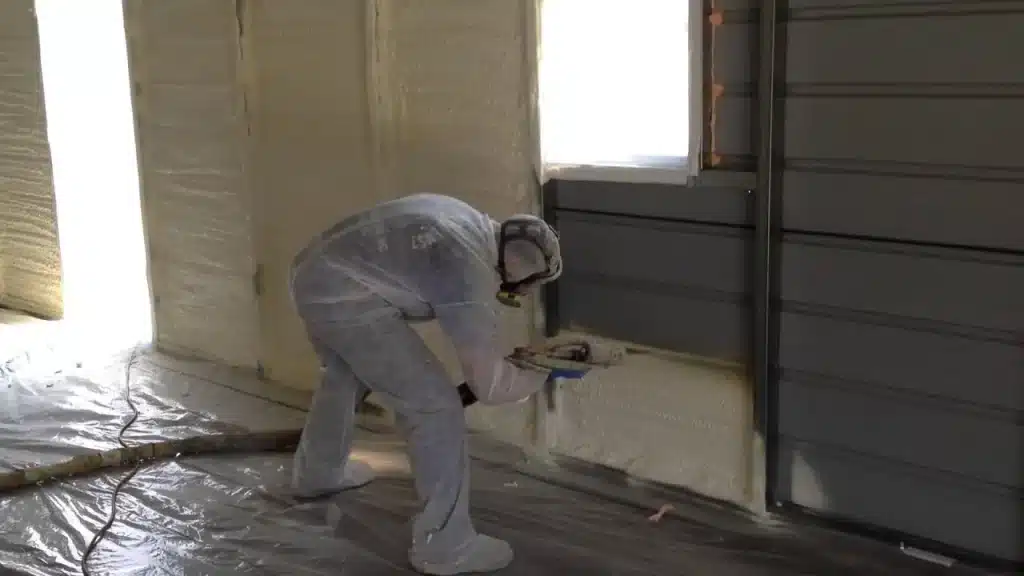When it comes to home insulation in Sanger, CA, spray foam is one of the most effective solutions available. However, not all spray foam is the same. Homeowners in Sanger often face a critical decision: Should they opt for closed-cell or open-cell spray foam? Both types offer unique benefits, and the right choice depends on your home’s specific needs. Let’s explore the differences and help you determine which option is best for your Sanger home.
Understanding Open-Cell Spray Foam
Lightweight and Cost-Effective Insulation
Open-cell spray foam is a lightweight, flexible, and cost-effective insulation solution. It has a lower density and is composed of tiny air pockets that give it a soft, spongy texture. Here’s why many homeowners in Sanger choose open-cell foam:
- Superior Soundproofing: The open structure of this foam absorbs sound waves, making it an excellent choice for reducing noise between rooms or from external sources.
- Cost-Effective Coverage: It is generally more affordable than closed-cell foam, making it a budget-friendly option for large insulation projects.
- Expands Rapidly: Open-cell foam expands significantly upon application, ensuring thorough coverage even in hard-to-reach areas.
- Moisture Permeability: While it can allow some moisture to pass through, it prevents water buildup and mold growth when properly installed.
However, open-cell spray foam has a lower R-value (thermal resistance) compared to closed-cell foam, which means it may not be the best choice for extreme weather conditions in Sanger.
The Strength of Closed-Cell Spray Foam
High Performance and Durable Insulation
Closed-cell spray foam is denser, stronger, and more moisture-resistant than its open-cell counterpart. With a compact structure, this insulation option provides enhanced durability and thermal efficiency. Key benefits include:
- Higher R-Value: Closed-cell foam has nearly double the R-value of open-cell foam, making it an excellent insulator for both hot and cold climates in Sanger.
- Exceptional Moisture Barrier: It resists water penetration, reducing the risk of mold growth and structural damage from moisture.
- Enhanced Structural Integrity: Due to its rigid nature, closed-cell foam adds strength to walls, roofs, and ceilings.
- Space Efficiency: Because of its higher insulation power, you can achieve excellent thermal performance with a thinner application.
While closed-cell foam offers superior performance, it comes at a higher cost and is less flexible, making it more challenging to install in certain applications.
Which One Is Right for Your Sanger Home?
Choosing between closed-cell and open-cell spray foam depends on various factors, including climate, budget, and insulation goals. Here’s a quick comparison to help you decide:
| Feature | Open-Cell Spray Foam | Closed-Cell Spray Foam |
| R-Value (Thermal Resistance) | Lower | Higher |
| Moisture Barrier | Permeable | Impermeable |
| Structural Strength | Flexible | Rigid & Strengthens Structures |
| Soundproofing | Excellent | Moderate |
| Cost | More Affordable | More Expensive |
| Expansion Rate | High | Low |
If energy efficiency and durability are your top priorities, closed-cell spray foam is the ideal choice for your Sanger home. If you need affordable insulation with soundproofing capabilities, open-cell spray foam might be the better option.
Unique Selling Points (USPs)
- Energy Savings: Both spray foam options create an airtight seal, reducing energy loss and cutting down utility costs.
- Customizable Solutions: Tailored insulation based on your home’s structure and climate needs.
- Eco-Friendly Options: Our spray foam products reduce carbon footprints by enhancing energy efficiency.
- Long-Term Investment: Durable insulation that lasts for decades with minimal maintenance.
- Expert Installation: Our experienced team ensures precise application for maximum performance.
Get Expert Guidance for Your Insulation Needs in Sanger, CA
Still unsure which spray foam is best for your Sanger home? Supreme Spray Foam–Fresno is here to help. Our experts can assess your home’s insulation needs and recommend the best solution for maximum comfort and efficiency.
Call us today at (559) 545-0800
Email us at [email protected]
Visit us at supremesprayfoamfresno.com
Frequently Asked Questions
What is spray foam insulation?
Spray foam insulation is a high-performance insulation material that expands upon application to fill gaps, cracks, and cavities, creating an airtight seal.
What are the main types of spray foam insulation?
There are two main types: open-cell spray foam, which is lightweight and flexible, and closed-cell spray foam, which is denser and offers a higher R-value.
How does spray foam insulation improve energy efficiency?
Spray foam creates an airtight barrier that reduces heat loss, minimizes drafts, and lowers energy consumption, leading to reduced heating and cooling costs.
Is spray foam insulation safe?
Yes, once fully cured, spray foam insulation is non-toxic and safe for residential and commercial use. Proper ventilation is required during installation.
Can spray foam insulation prevent mold growth?
Yes, closed-cell spray foam acts as a moisture barrier, preventing water infiltration and reducing the risk of mold and mildew.
How long does spray foam insulation last?
Spray foam insulation can last for decades—often 20 years or more—without significant degradation when properly installed.
Can spray foam insulation be installed in existing homes?
Yes, spray foam can be applied to existing homes, but installation may require opening walls or attics for proper application.
Will spray foam insulation help with soundproofing?
Yes, open-cell spray foam is particularly effective at absorbing sound, making it a great option for noise reduction between rooms.
Is spray foam insulation eco-friendly?
Yes, spray foam insulation enhances energy efficiency, reducing the overall carbon footprint of a home or building. Some formulations also use environmentally friendly blowing agents.
How much does spray foam insulation cost?
The cost varies based on factors like the type of foam, the size of the area being insulated, and labor costs. Closed-cell foam is generally more expensive but offers higher energy savings.


